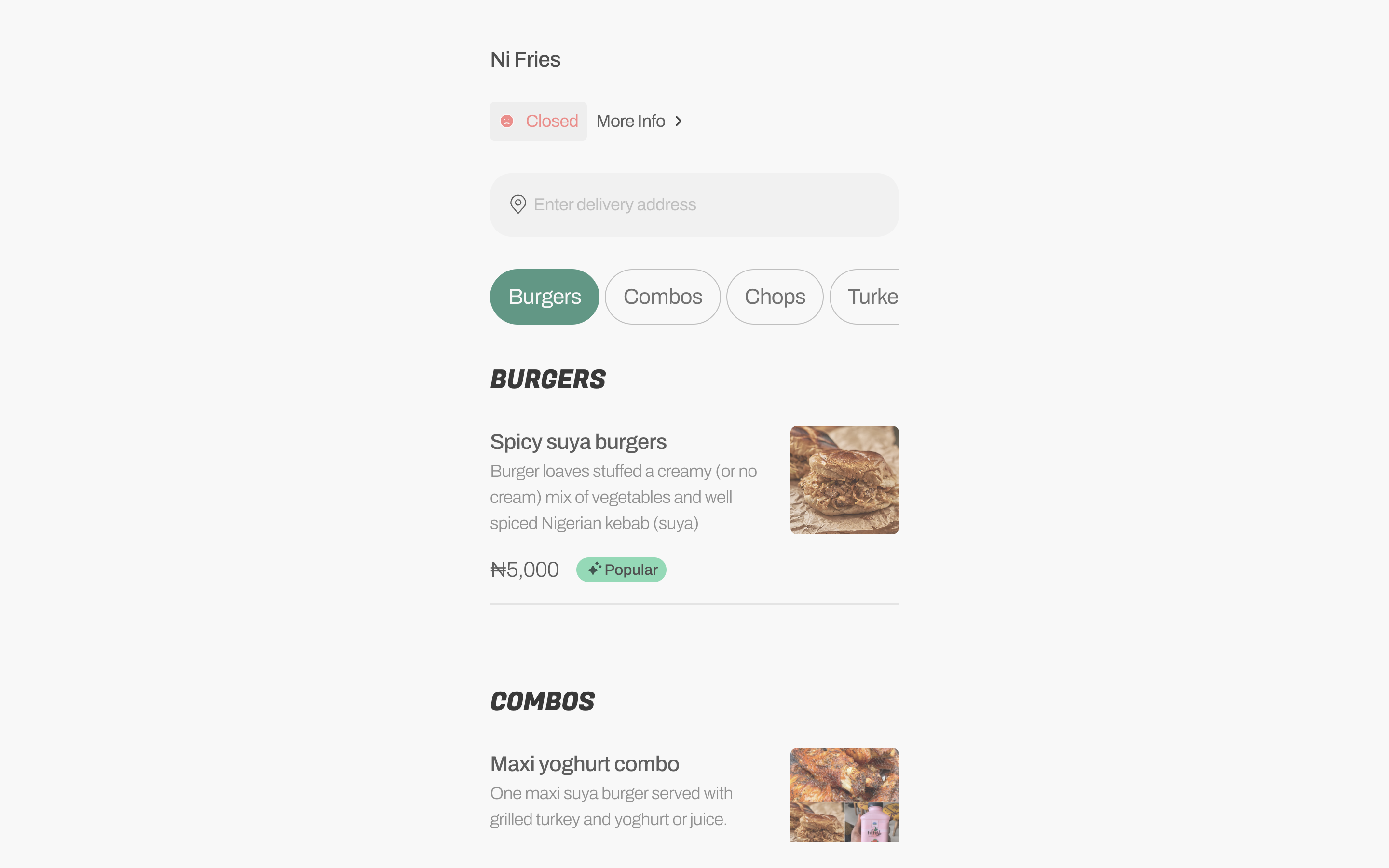In 2013, Feranmi Ajemotobi pitched the idea of a fusion restaurant that served Nigerian-style fast food. The name? Nigerian-Fries “NiFries”. NiFries ran from 2013-2014, taking a six-year break before starting up again during Covid.
The pandemic made a lot of home chefs, people who wanted to try something new and wanted to talk to others about trying something new. “I stayed in a house with 18 other people. Then it became a thing where I'd cook at home and put some pictures on Twitter and be like, “hey guys, I'm making pounded yam for 19 people in the house.””
The pivot for Nifries came during that time, “I decided to try making suya burgers.” Suya burgers are a staple of university campuses, with street vendors mixing suya and bread in a sandwich and selling it to students. The traditional style of suya burgers didn’t appeal to Feranmi, as he felt choked every time he took a bite.
“I thought of how I could make it better. I got some vegetables, got a mix, chopped up the suya, then put it into the mix and in between the bread. We used that Agege bread that day then we turned it on the grill. So, I think turning the bread on the grill with that mix was what made our own very different. And I was like, “Guy, this makes mad sense!””
The concept of suya burgers is not novel, but suya burgers made the way NiFries make it were a hit everywhere. “ I and my co-founder, Sanmi Taiwo, got a couple of stickers for NiFries then we would send popular people on Twitter goatmeat sauce and fries. Then we started giving people the suya burgers to try out, and they loved it.”
From Google Forms to Digital Menus
The first iteration of taking orders was less than stellar, “Taking orders at the time was ridiculous. We’d have this Google Form that people would have to fill manually and then we’d export the data into a sheet and have to sort out the orders manually.” If that sounds like a stressful process, it’s because it was. “For things like getting low on stock, it’ll be right before the order is made that the kitchen would inform me that they couldn’t fulfil that order.”

And then came Mira, “I can monitor orders from my bed. I can push orders to processing, and the team can see it in real-time. I don't need to start making calls to ensure orders have been seen, everyone can work remotely. I mean the time the head chef and I travelled out of Lagos, yet it was possible to run the kitchen from where we were.”
On Expansion
Both co-founders are not looking to expand currently, choosing to exist on a model that allows them the flexibility and freedom to be lean. “Our model has always been to be very lean and not necessarily own big spaces. We do offline orders in partnership with our hosts wherever they are, then more online orders.”
NiFries, the Fusion restaurant
“We make food for the guys that say, “I don't like this thing.” And we’d go, “you will like it by force.” We've met a lot of people that say they don't eat burgers at all. And we find out that the reason why they don't eat burgers is because of how patties are made.
“Burgers are basically the patties in between the bread. We just call it suya burgers because it’s Nigeria’s idea of burgers. So we do a unique patty style with our suya to ensure that more people that aren't acclimated to the regular burgers can taste home in the food.”

The beauty of NiFries is the appeal to the palate of both foreigners and Nigerians, mixing the best of both worlds. “We're cooking for people who want to play safe and at the same time still explore. That balance of playing safe and exploring is what we do. We even have things like asun pasta, asun spring rolls and we have suya alfredo. People that don't eat creamy pasta will have our suya Alfredo and like it. The Nigerian palette likes spice or pepper, if you look at it that way and most alfredo meals don't have a peppery touch.”
